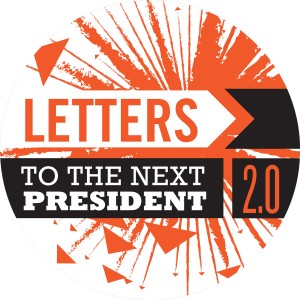Researching Media Bias

Is the Media Bias? How?
Many candidates and their supporters claim the media is biased against them or for their opponents.
Trump views himself as a victim of the media–sitting out the most recent Fox debate for that reason. But many of his opponents see his apparent success as a product of exaggerated media attention.
Some claim Hillary Clinton is given an unfair advantage by the media, while others, like the actress Lena Dunham, argue the opposite.
For this exercise, you will search the Web for examples of media bias.
- Find an article that you think is not treating a candidate fairly.
- Create a page-level annotation on the article you find.
- In the annotation explain generally how you think the article is bias.
- Add the tags “nextprez” and “media bias” to the annotation.
- Post the annotation.

As a possible extension of this exercise, you might annotate your researched article to demonstrate its media bias, zooming in on the line or lines that specifically evidence the bias. Or you could view the stream of annotations tagged “nextprez” and “media bias” and respond to the work of other students.